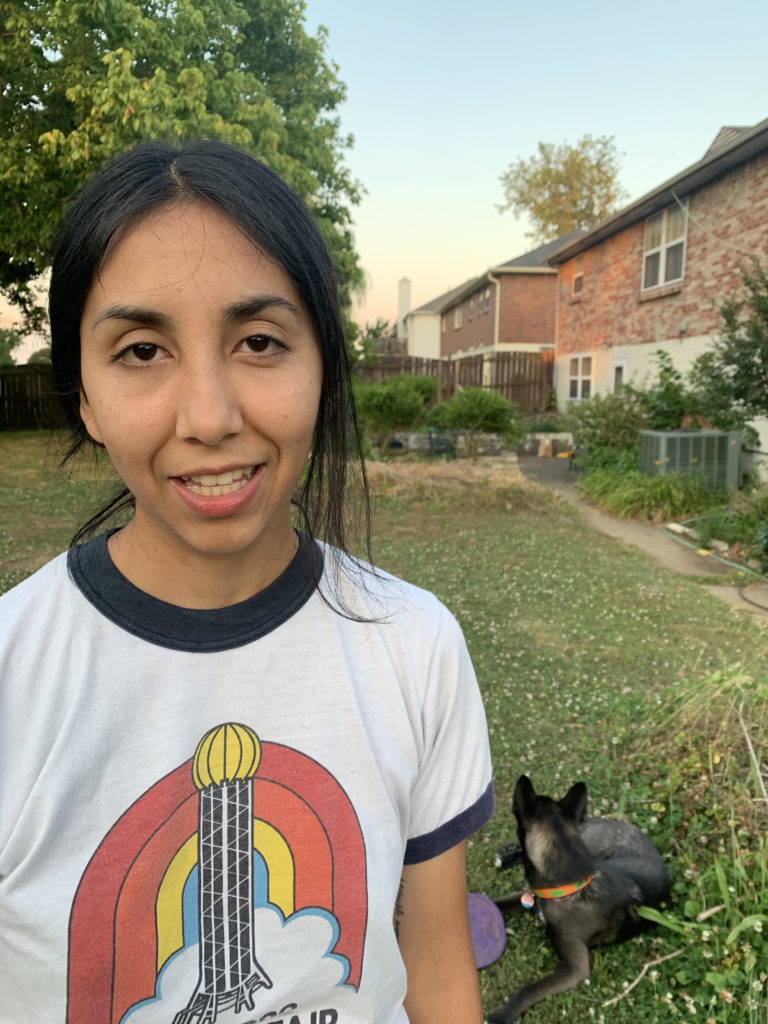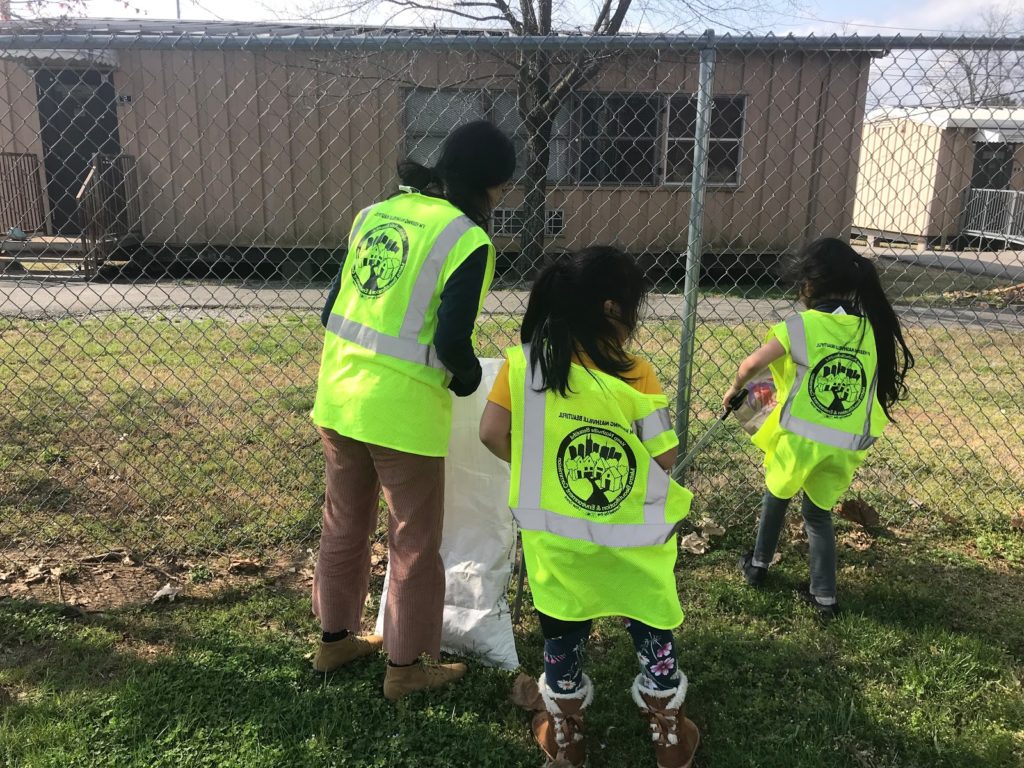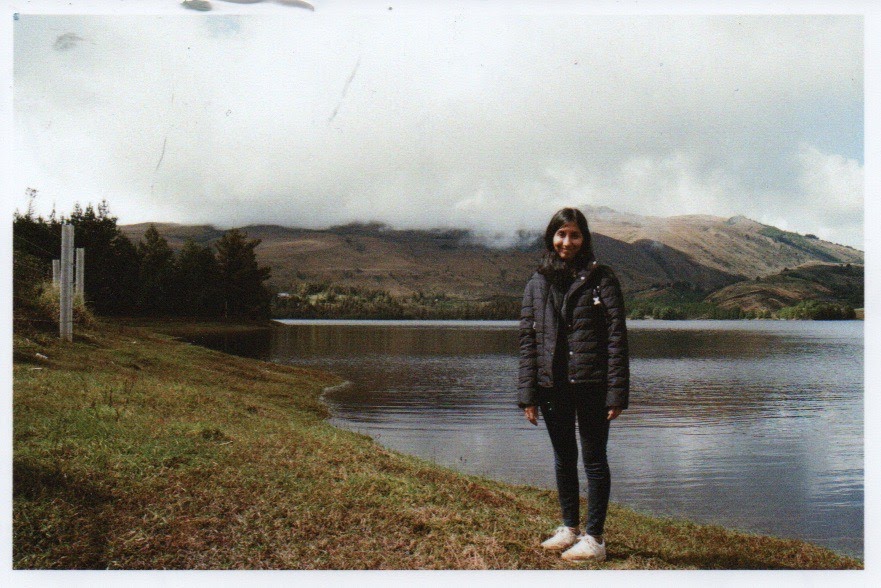Urban Green Lab knows a little change goes a long way when it comes to living sustainably. To help Nashville make that little change, we’re helping everyone in the community find their lab.

“Fighting unjust systems that allow such disparities is my motivation. We must fight for just and equitable sustainable change.”
Nicole Avendaño
Education Coordinator
Turnip Green Creative Reuse
Facebook | Instagram
Nicole, where is your lab?
My lab is at home when I’m chucking organic material into my compost bin, growing a singular kale plant, or using ‘reuse’ material to make art. My lab is at work when I’m synthesizing waste reduction information into lesson plans and presentations. My latest lab ‘experiment’ has been in my community where I worked with a team to help increase recycling participation while decreasing recycling contamination in select South Nashville neighborhoods.
How did you get interested in sustainable living?
I am definitely motivated by the natural environment, but my ultimate motivator for making sustainable change is people’s health and wellbeing. The beauty and complexity of the natural environment has unquestionable inherent value. However, I find it is also valuable because we find value in it. People are the ultimate common denominator. Our health and wellbeing are increasingly at risk the longer we wait to make sustainable change that mitigates climate change. Furthermore, low-income communities and communities of color face an even greater risk of suffering from poor health and wellbeing as a result of human-caused climate change. Fighting unjust systems that allow such disparities is my motivation. We must fight for just and equitable sustainable change.
Describe a time when you inspired others to live more sustainably.
One of my favorite Turnip Green Creative Reuse programs has been litter pickups with Whitsitt Elementary. In this program, I have the opportunity of teaching students about the negative impacts of litter, and I get to lead them on an actual litter pickup at their school. It has always been a really special experience for me to watch students get excited to do good for their community and pick up litter. One student even expressed that this was her favorite program and felt inspired to continue to pick up litter in her community.

What has been your biggest challenge or question?
The environmental movement faces many challenges, and I have many questions. How do we execute and streamline a process where climate change is successfully and equitably mitigated? How and when will environmental justice be achieved? Leaders of the environmental movement and the movement itself need to reflect current U.S. demographics. Studies show that youth of color are underrepresented in studying the sciences. This leads to further underrepresentation in decision-making and implementation sectors such as public service and the Environmental Protection Agency.
What advice do you have for others to make sustainable changes?
Find your niche, but don’t get tunnel vision! I have had a bad habit of getting so excited about a certain area of environmentalism that I forget about other endeavors in sustainable change. I think it’s great to be passionate about a specific topic, but I urge you to not get stuck there. The realm of sustainability is immensely interdisciplinary and interconnected. Never lose sight of the fact that the whole is greater than the sum of its parts.
Where is your favorite local spot to get in touch with nature?
My favorite local outdoors spot is Long Hunter State park. I usually do the day loop trail, as it is one of the only trails that allows dogs! This park is perfect for trail running, hiking, watching the sunrise, and even canoeing and kayaking.

What is your sustainable vision for the city of Nashville?
I want to see a more accessible and livable Nashville for everyone, starting with communities that have been historically ignored and underserved. I want to see more sidewalks and safer (and more!) bike lanes. I want to see more affordable housing, more green buildings, and policies and policymakers who support these initiatives. I want to see Nashville implementing environmental equity assessments that evaluate how equitably environmental impacts and outcomes are distributed among residents. Nashville needs to be more inclusive and community-facing in their policy making because low income communities and communities of color are oftentimes left out of the decision-making process and therefore do not benefit from the outcomes of environmental policy.
Urban Green Lab thrives due to charitable support from readers like you. Stay up-to-date with news, events, and more blog posts by signing up for our email newsletter.